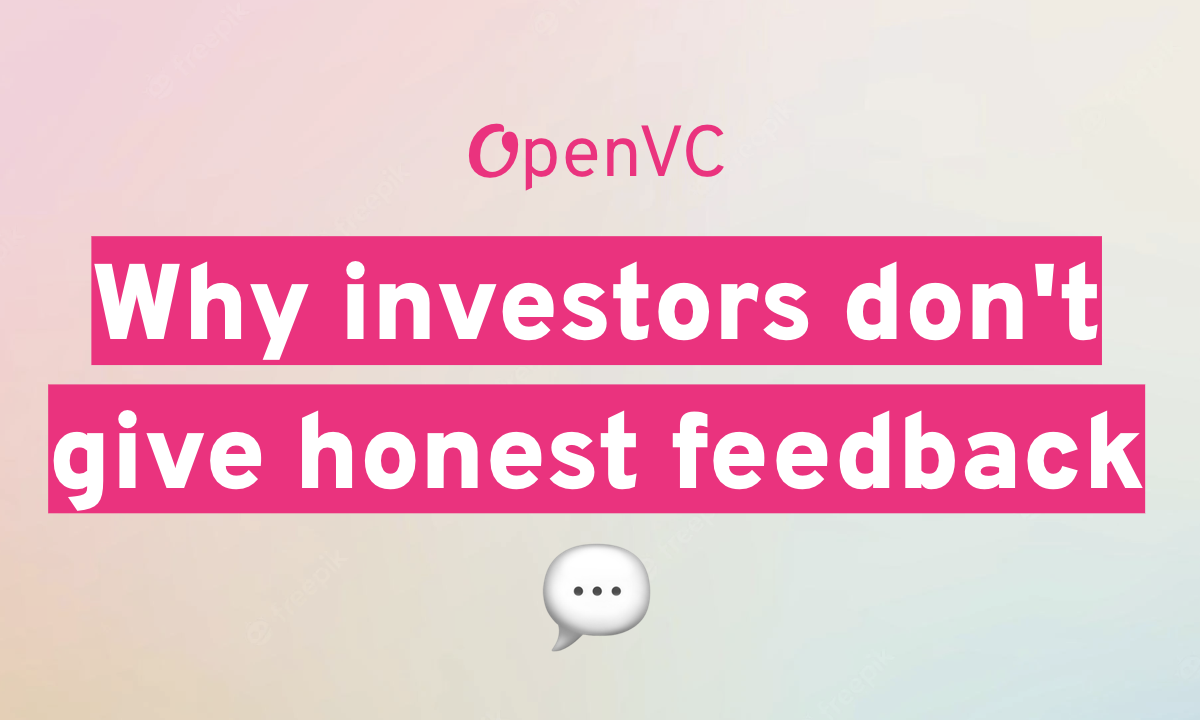As Director of Demand Generation at Demand Inc., my career has been marked by the privilege of collaborating with numerous startup founders, all visionaries with unique missions. Intriguingly, many of these trailblazers often step beyond their expected roles, assuming the mantle of lead salespeople for their companies.
On the surface, it may seem more fitting for these founders to remain behind the curtains, orchestrating the broader strategies.
But the facts are clear: founder-led companies outperform the rest.
There's a deeper, often untold narrative to founder-led sales that I've come to appreciate through my interactions. It's not just about pushing a product or service. Instead, it's a heartfelt rendition of their journey — the challenges faced, the unwavering commitment, and the sheer belief in the value they're bringing to their customers. As the driving forces behind their startups, these founders often possess an unmatched ability to communicate the true essence and the potential of their solutions.
So, why do these founders, whom I've witnessed and worked alongside, choose to immerse themselves in sales? And what's their secret to outperform the rest? Here, we'll share the keeys to success as well as some of the most well-known founder led sales examples.
Table of Contents
What does founder led sales mean?
Founder led sales refers to a sales strategy in which the founder or CEO of a startup actively participates in the sales process. This approach is common in early-stage companies, where the founder leverages their deep knowledge of the product, vision, and market to build relationships with potential customers, drive sales, and establish a strong brand presence.
How Founder-led sales outperform the rest
Founder-led sales is not just a necessity for many startups; it can be a formidable strength if approached with the right mindset and strategies. There are countless instances in the business world where founders, armed with intimate product knowledge and an indomitable spirit, turned their direct sales involvement into a game-changing advantage for their ventures.
Founders leverage unique product knowledge
Founders possess an unparalleled understanding of their products or services.
This depth allows them to answer intricate questions, address concerns with precision, and showcase the product's value in a way few others can.
For instance, the early days of Dropbox saw Drew Houston, its founder, actively involved in explaining the unique value proposition of Dropbox to potential clients. His technical acumen, combined with his genuine enthusiasm, made pitches more compelling and helped the company gain its initial traction.
Founders build trust through authenticity
Direct engagement with potential clients offers a personal touch that's hard to replicate.
Take the story of Brian Chesky, the co-founder of Airbnb. In its nascent stages, Brian often met with hosts and guests, gathering feedback and demonstrating how Airbnb could be a trust-driven community platform.
This hands-on approach not only helped refine the platform but also built lasting relationships that propelled the company forward.
Today, Brian is still very much the authentic voice of Airbnb, directly engaging with the customers on social media.
Founders adapt rapidly to feedback
Founders on the frontlines of sales can immediately pick up on customer feedback and pivot when necessary.
For example, when Slack was first developed as an internal communication tool for Stewart Butterfield's gaming company, Tiny Speck, it was the direct feedback from other businesses that led Butterfield to pivot and focus on Slack as a standalone product.
This real-time adaptation to market needs, driven by founder engagement, is a key factor behind Slack's success.
Here's a video of Stewart Butterfield explaining how he did the first few sales of Slack himself.
Founders align vision with sales strategy
Founders have a unique ability to weave the company's vision into their sales narrative. By presenting not just a product but a future-driven perspective, they can resonate more deeply with potential clients. Elon Musk, with his ventures like Tesla and SpaceX, is a testament to this.
His pitch isn’t merely about electric cars or rockets; it's about a sustainable future and interplanetary existence. This visionary approach amplifies the sales narrative, making it more impactful.
This is apparent when you look at Tesla's master plan.
More times than not, success is achieved by having the founder directly involved with prospects and clients, leading sales calls, presentations, and negotiations. The founder's perspective's is invaluable - they understand the startup's long-term aspirations better than anyone else.
Founders capitalize on industry networks for targeted sales
Derek Rey, the CEO and founder of Demand Inc. serves as another example of how to utilize industry networks for targeted sales effectively. Given the ever-evolving nature of digital marketing, Rey consistently tapped into his vast network of industry professionals, partners, and previous clientele to keep Demand Inc. at the forefront. This wasn't just about selling a service; it was about positioning Demand Inc. as the go-to authority in the sales development landscape. Rey's direct involvement ensured that the company's offerings were always in line with industry demands, thereby ensuring customer satisfaction and, in turn, loyalty. His hands-on sales approach, backed by deep industry knowledge, set Demand Inc. apart in a crowded market.
By combining founder expertise with the pulse of the industry, startups like Demand Inc. highlight how founder-led sales can be more than just transactional – they can be transformative.
Founders take charge of outbound
In founder-led sales, no one understands the target market and investor landscape better than the founders themselves. They have a clear vision of the types of investors they want to reach, from understanding the values and goals of potential backers to pinpointing those who can bring strategic value beyond capital. This insight allows them to focus their outbound sales efforts, targeting investors who align with their mission and who genuinely resonate with the product or service they’re building.
Find your ideal investors now 🚀
Browse 5,000+ investors, share your pitch deck, and manage replies - all for free.
Get Started
The challenges of founder-led sales
While founder-led sales offer numerous benefits, it's essential to understand the unique dynamics it presents. Here's a closer look at some considerations founders might face when engaging in sales:
- Diverse Responsibilities : Founders often juggle multiple roles, from product development to team management. Integrating sales into this mix requires adept time management and prioritization to ensure all areas receive adequate attention.
- Deep Product Connection : Being intricately linked to the product or service can offer a unique selling perspective. However, it's essential to maintain a balance to understand various customer viewpoints and feedback.
- Growth Transitions : As a startup scales, the sales approach may need to evolve. What works at an early stage, with the founder at the forefront, might require adaptation as the business expands to accommodate a broader client base.
- Continuous Learning Curve : While founders bring deep knowledge about their product, the world of sales can present its own learning journey. Embracing this journey can enhance the sales process and open up new opportunities.
- Balancing Enthusiasm with Commitments : Founders' passion can drive sales forward. It's essential to channel this enthusiasm into creating realistic expectations and promises that align with the company's capabilities.
Awareness of these dynamics allows founders to harness the strengths of their unique position in sales while effectively navigating any potential challenges.
Tips for Implementing a Better Founder-Led Sales Strategy
1. Establish your sales strategy
Start by defining your target market, understanding their pain points, and determining how your product solves their problems. Your sales strategy should include the following components:
- Value Proposition: Clearly articulate what makes your product unique and why customers should choose it over competitors.
- Sales Process: Outline the steps from lead generation to closing the sale, including key actions, timelines, and metrics to measure success.
- Customer Segmentation: Identify different customer segments and tailor your approach to each, understanding that their needs and objections may vary.
- Sales Goals: Set specific, measurable objectives to track progress and adjust strategies as needed. This could be the number of calls made, demos conducted, or deals closed each month.
Let these principles guide you and your team when interacting with prospects as well as investors.
2. Polish up on your sales skills
Focus on developing your persuasion and negotiation abilities, as these are key to closing deals. Regular practice is vital; consider role-playing sales scenarios with team members to build confidence and refine your pitch. After each call or presentation, seek constructive feedback from trusted colleagues to identify areas for improvement. Engaging with resources like sales books, online courses, and workshops can also deepen your understanding of effective sales techniques. Ultimately, consistent practice and a willingness to learn will enhance your effectiveness in real-world situations.
3. Grow your network
As a founder, your network is one of your most valuable assets. Leverage your personal brand and relationships to advance your sales strategy. Here are just few channels that are effective in a founder led sales strategy:
- Conferences: Participate in industry events and networking meetups to connect with potential customers and partners. Use these opportunities to showcase your expertise and learn from others.
-
Social Media: Today, LinkedIn and X are incredible channels to market your startup. Founders have a chance to share product/company updates, establish thought leadership, and utlimately tell your unique story. As you grow your following, sales opportunities will start coming to your inbox.
- Incubators and Accelerators: Programs often provide access to training, resources, and a valuable network of connections that can lead to early adopters or strategic partnerships. Many founders find that incubators and accelerators are ideal for refining their sales strategy while developing a strong support system within the industry.
4. Celebrate wins and learn from losses
Embrace a growth mindset by recognizing your successes and analyzing setbacks. Celebrate achievements, no matter how small, as this boosts morale and motivation for you and your team. When faced with losses, take time to conduct a thorough review of what went wrong. Identify patterns in customer feedback or objections that can help you improve your pitch or product. Use the lessons learned to refine your sales strategy and approach. Being adaptable and willing to iterate on your methods is key to long-term success in sales.
Conclusion
Having closely worked with numerous startup founders and seen the transformative potential of founder-led sales firsthand, it's evident that this approach offers a unique blend of passion, authenticity, and direct market feedback. This isn't just about making a sale; it's about laying a strong foundation for a startup's growth trajectory.
Every interaction a founder has with potential customers is an opportunity to learn, iterate, and refine. It's this intimate understanding of market needs, paired with the intrinsic motivation to see their vision succeed, that makes founders invaluable assets in the sales process.
However, as with any approach, it's essential to strike a balance. While founders bring unparalleled enthusiasm and authenticity to the table, it's crucial to recognize when to step back, delegate, and employ the expertise of dedicated sales professionals. This balance ensures that the startup not only thrives in its initial stages but is also poised for sustainable growth in the long run.
To any startup founder or professional considering this approach, remember that founder-led sales is more than a strategy—it's an embodiment of the startup's vision, mission, and values. When harnessed effectively, it can be the catalyst that propels a startup from obscurity to industry leadership.
Find your ideal investors now 🚀
Browse 5,000+ investors, share your pitch deck, and manage replies - all for free.
Get Started
About the author
In a dynamic decade of digital marketing, Daniel Trujillo has orchestrated the melodies of Marketing, SEO, demand generation, and brand crescendo. From Sales Development beginnings to leading as the Director of Demand Generation at Demand Inc., Daniel's versatility shines through roles as an SEO virtuoso and sales maestro. Renowned for devising campaigns that resonate and drive stellar SEO rankings, setting them on trajectories of unparalleled growth. With an analytical core and an innovative spirit, Daniel empowers brands to dance confidently in the digital realm. His philosophy? Dive deep, dream big, and inspire business symphonies.









